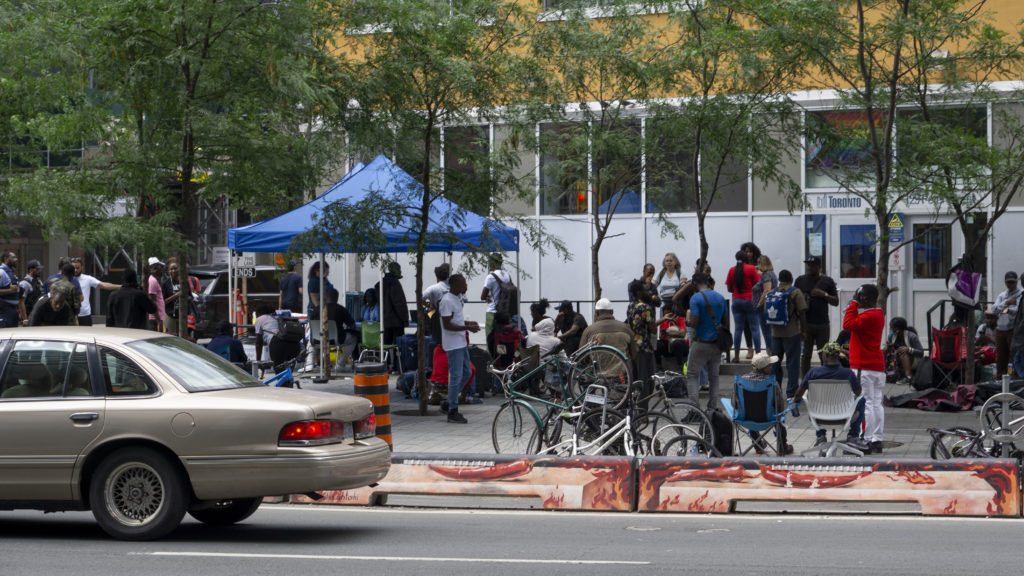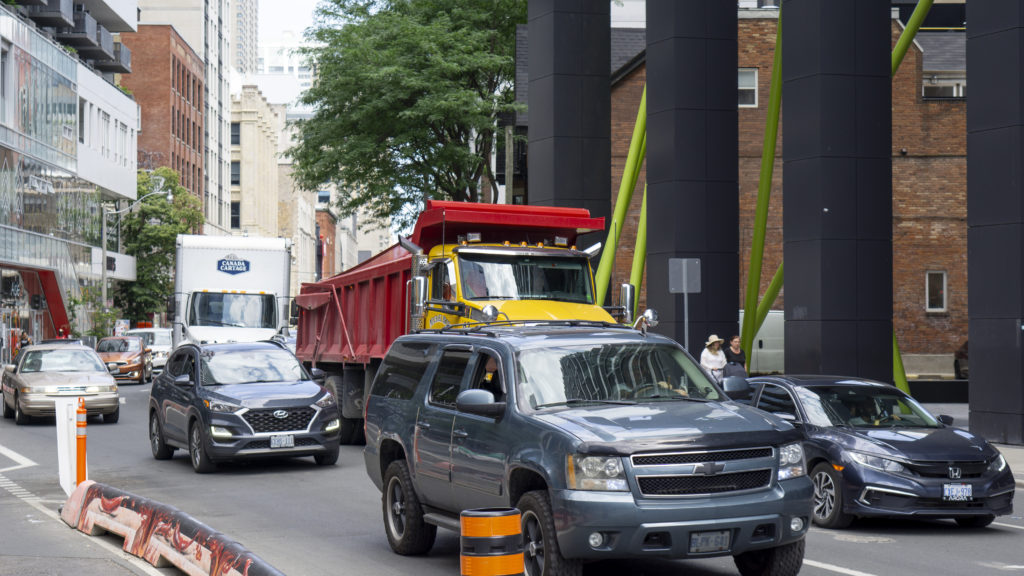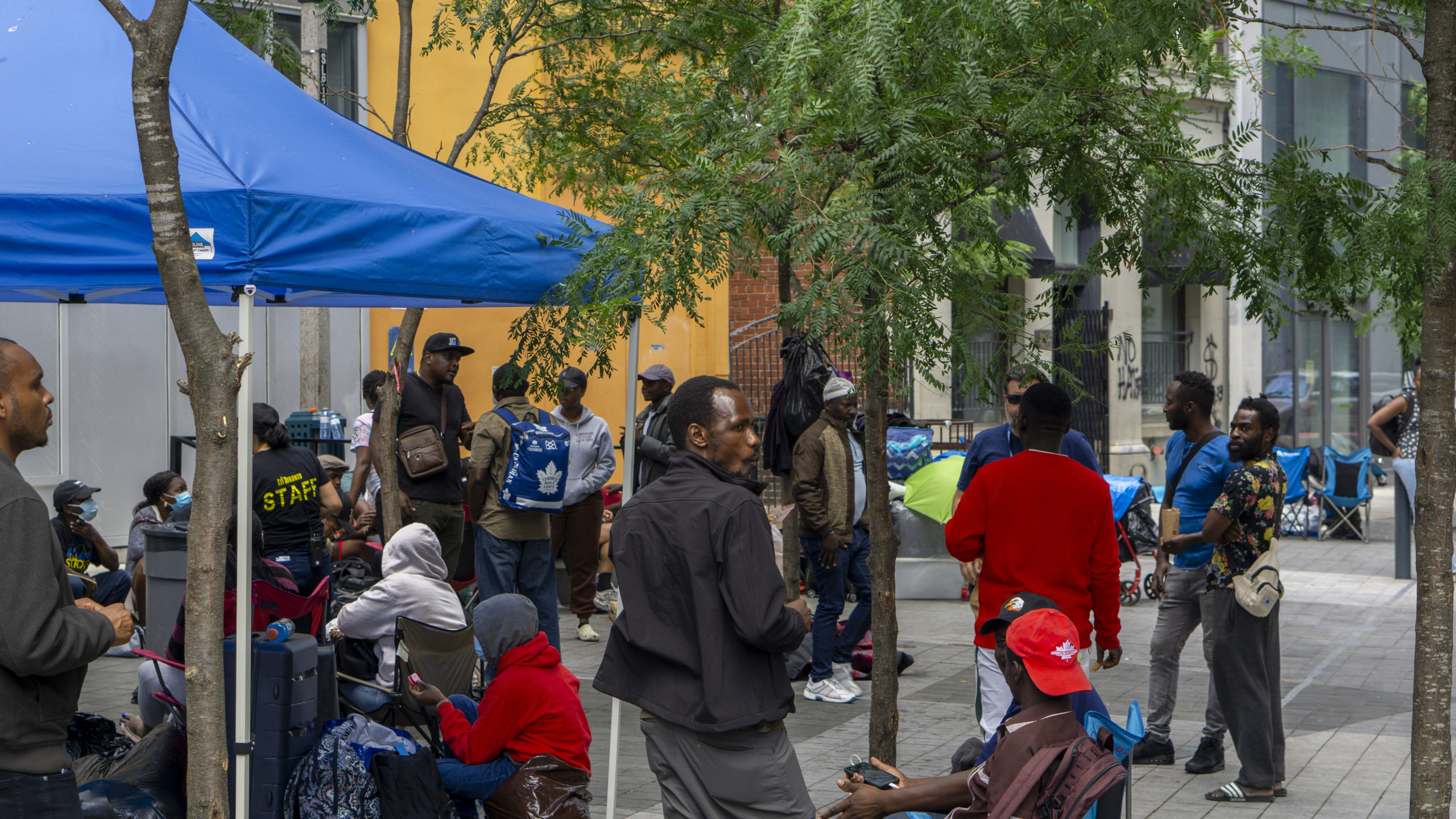Members of Parliament are calling for an improved current and long-term approach to address the refugee and asylum seeker situation in Toronto. During the past weeks, refugees and asylum seekers have been living outside of downtown intake centers due to the overcrowding of Toronto’s shelter system. The most significant gathering occurred at 129 Peter Street, with many refugees coming from African countries.
Kevin Vuong, an independent member of Parliament for Spadina-Fort York in Toronto, has been holding clinics and says the issue is close to home for him; his parents came to Canada as Vietnamese refugees.
He notes that a significant number of asylum seekers are fleeing to Canada because of severe and life-threatening levels of persecution in their home countries based on their sexual orientation, ethnicity, and political beliefs.
On July 18, the federal government announced the extension of the Interim Housing Assistance Program (IHAP), which consists of a $212 million, one-time injection of federal housing support for refugee and asylum claimants; approximately $97 million of the funds will go to Toronto. The IHAP program extends until March 31, 2024.
Vuong posits that the federal government’s IHAP funding came late, which sent a clear message to some LGBT refugees and asylum seekers:
“The Liberal government loves to claim the moral high ground when it comes to LGBT rights, [yet] you have members of the same LGBT community that the government allegedly stands up for and defends, literally on the street.”

Between 2018 to 2022, the federal government gave $215 million to support Toronto’s asylum seeker response. Vuong raised concern as early as March 2023, when he noticed a lack of direct funding for Toronto in the recent budget.
The 2023 federal budget says it provides funding support for refugees, including spending for more efficient processing of citizenship applications, legal aid services, and health care coverage for those who are not yet eligible for provincial health care insurance.
However, Vuong describes this temporary funding as a “band-aid for a gunshot wound” and emphasizes the need for effective long-term strategies. “There needs to be a plan to help ensure that they’re set up for success, [that] they don’t arrive here and find themselves on the street.”
Jenny Kwan, who is a member of Parliament for Vancouver East and NDP critic of housing, immigration, refugees and citizenship, noted that the IHAP announcement is a good first step but highlighted the federal government’s lack of planning in the past.
“The federal government really needs to ensure that they’re working collaboratively with the provincial, municipal, and nonprofit organizations on the ground. And in particular, the NGOs. They’re the people who actually really know what’s going on,” says Kwan.
A report by the Committee on Citizenship and Immigration conducted at the House of Commons in November 2016 examined the federal government’s resettlement efforts of 25,000 Syrian refugees between November 4, 2015 and February 29, 2016.
The committee recommended for “Immigration, Refugees and Citizenship Canada [to] work with its partners to develop an affordable housing strategy for newcomers, and that the government work with the provinces and settlement agencies.”
Kwan says the federal government did not implement the recommended measures, even after NGOs offered to partner. “History is repeating itself. We have a large number of asylum seekers coming to Canada — there’s no preparation for it,” she adds.
In addition, the federal IHAP announcement implied that housing and support for asylum seekers is the responsibility of municipal and provincial governments. However, both MPs point out that refugees are the responsibility of the federal government.
The Government of Canada’s Immigration and Refugees website mentions it works with its partners to provide settlement services for refugees. It also outlines the Resettlement Assistance Program, which provides income support and essential services to refugees upon arrival. Vuong adds that “the city does have a role in administering and operating the shelters.”
Kwan saw how the federal government responded efficiently to the Ukrainian refugees, granting them with special immigration measures, quick processing of applications, work permits, and resettlement support. She believes these measures should be a standard for all asylum seekers.
She says, “The delay in processing is significant for people waiting for months to move forward. If that’s the case, then people are not going to be able to find ways to support themselves, it will only worsen the situation.”
“A standard has been set with respect to asylum seekers and refugees through the Ukrainian initiative. Let’s honour that. And let’s ensure that we send a clear message that we value all people no matter who you are or where you come from.”

Recently, the city of Toronto has secured more than 200 beds for the asylum seekers. These changes come in the wake of the $97 million emergency IHAP funding directed for Toronto.
According to a supplementary report from the city of Toronto, the city requires an extra $60 million to provide 1,000 additional shelter beds for asylum claimants in Toronto. These estimates do not include additional needs that may arise from the ongoing situation — the city also faces a $1.5 billion dollar deficit.
Despite the city’s recent interventions, Vuong argues that Mayor Chow should have acted promptly with interim solutions, prior to the IHAP funding.
He says the city could have called on the federal armoury, used vacant schools, or coordinated with lower-capacity shelters outside Toronto to provide the refugees and asylum seekers with immediate help.
Vuong commented on the inaccurate narratives spreading about refugees and asylum seekers who allegedly come to Canada as “economic migrants” who are “here for jobs.” “That’s not the case” he argues. “These are not political pawns. These are not bargaining chips. These are human beings.”
Kwan hopes this recent scenario can serve as an example for future situations with refugees and asylum seekers: “We can’t just sort of lurch from crisis to crisis, and then throw bits of money whenever. We need to plan ahead. By doing that, not only do we do the job better, but we also build confidence in the hearts and minds of Canadians.”
Vuong does not want people to forget or assume the problem is completely solved because of the recent funding announcement. “There’s a much broader issue that needs to be addressed.”





It’s wrong, not to mention hypocritical, to criticize desperate people for doing what we all likely would do if in their dreadful position. But, of course, all of that no longer matters when they die in their attempt at arriving.
Migrants and refugees in general willfully and contently become permanent financial/resource burdens on their northern host nation. Quite likely they desire to pull their own weight via employment, even if only to prove their critics wrong. I know I’d much want to if in their shoes.
Meanwhile, even genuine refugees are nowadays typically deemed ‘fake’ or economic refugees, especially on social media. Yet, many are rightfully despondent, perhaps enough so to work very hard in cashless exchange for basic food and shelter.
… The death of true Christianity seems to have commenced the moment Jesus ascended.